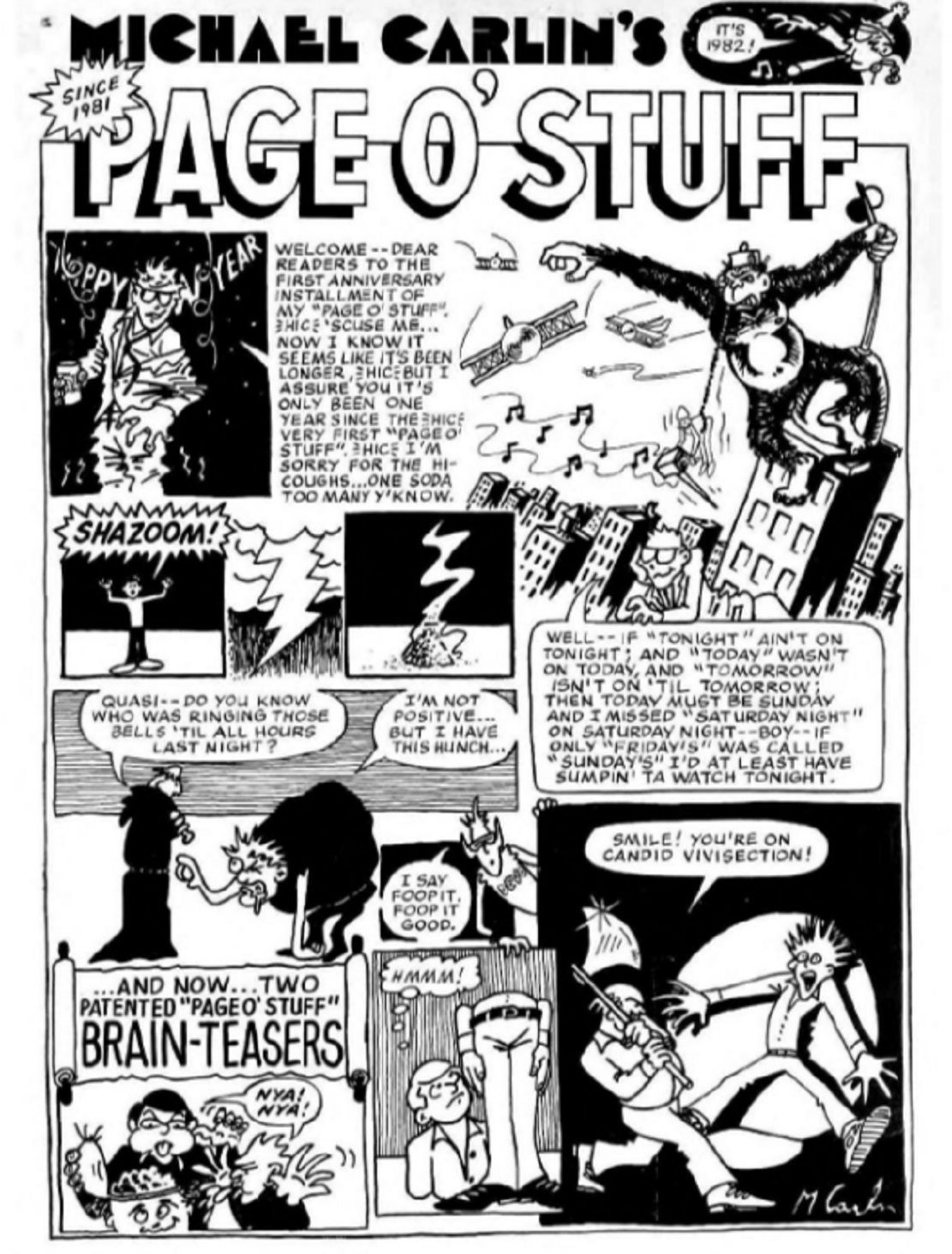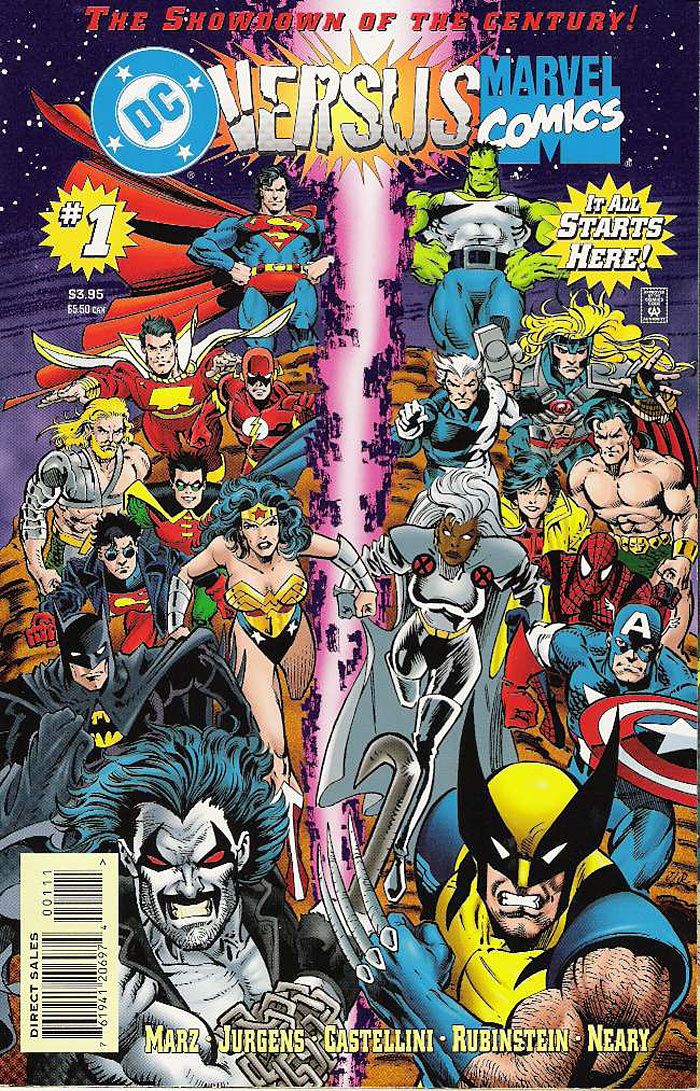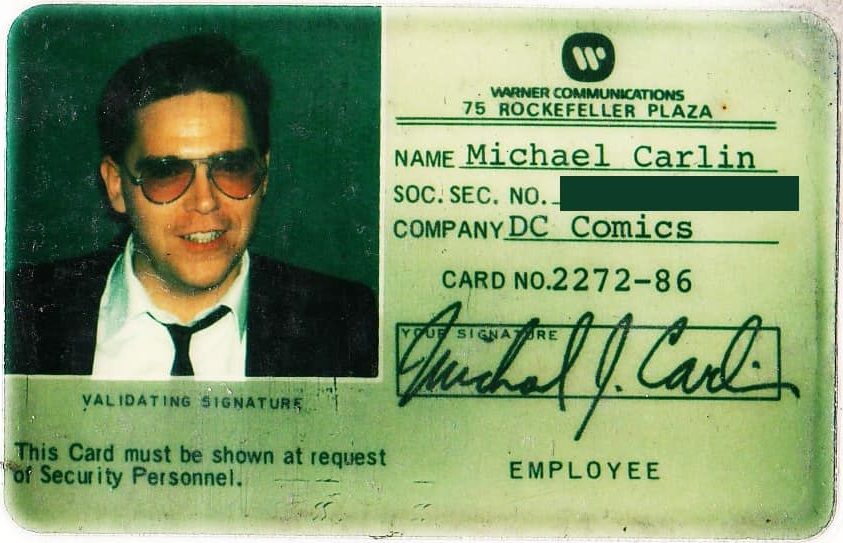Mike Carlin, the longtime DC editor who was notably the Superman group editor during the "Triangle years" of the Superman titles, which most famously included the Death of Superman in 1992, has retired from DC after 37 years with the company.
Carlin made the announcement on the Facebok page of his wife, Janice Woltag Cohen, where he explained his life-long association with DC that began when he was a small child, through his rise in the company's ranks after his Superman days, from Group Editor to V.P. Executive Editor to Senior Group Editor once again to his current role in DC Entertainment's animation division.
When Did Mike Carlin start at DC?
Carlin worked as an intern at DC when he was in high school in the 1970s. After graduating from college, Carlin began working for Marvel on their riff on Mad Magazine, Crazy, where Carlin was a regular contributor (as Michael Carlin) in the very early 1980s...
He then was hired as Mark Gruenwald's assistant editor. He rose the ranks at Marvel, ultimately becoming an editor himself, while also freelancing as a writer for Marvel. He was the writer of the Thing ongoing series and Captain America, both under Mark Gruenwald. Then he and Gruenwald swapped roles in 1985, with Gruenwald taking over writing duties on Captain America, and Carlin becoming his editor on the series. Carlin was let go at Marvel in 1986.
Luckily, a number of Marvel creators had recently moved to DC, including John Byrne, the star writer/artist who had writen and drawn Fantastic Four for Marvel, which Carlin had edited for two years before being dismissed (right around the same time Byrne's run on the book ended). So with Byrne now at DC on Superman and Action Comics, Carlin was hired to work with Andy Helfer on the Superman books, with Carlin taking over from Helfer on the books at the end of 1987. One of the first major editorial achievements for Carlin on the Superman books was the transition of Action Comics into a weekly anthology in 1988.
Beginning in 1990, Carlin began having "Superman Summits" with the writers and artists on the Superman titles. Starting in 1991, Carlin pulled off one of the more remarkable editorial achievements by launching the "triangle," a cover label that showed what order you were meant to read the three (soon four) Superman titles in. In other words, the four Superman titles existed as essentially one weekly story, only with each creative team also having their own distinct supporting cast, It was very complicated, but Carlin and his creators pulled it off for years.
In 1992, one of the Superman Summits launched the idea that became the Death of Superman, one of the most famous superhero comic book stories of all-time.
Carlin and the creators then brought Superman back in a hit storyline, Reign of the Supermen, which also introduced brand-new hit characters like Superboy and Steel. Carlin won the Eisner Award for Best Editor in 1994.
In 1996, Carlin was made an Executive Editor at DC. He helped coordinate with his old boss, Mark Gruenwald, in the historic DC vs. Marvel crossover event in 1996...
Back as a Senior Group Editor in 2003, Carlin was the editor on the hit miniseries, Identity Crisis, which was a major turning point for the DC Universe in the 21st Century.
What has Mike Carlin done for DC in recent years?
Carlin moved to Burbank when DC closed up its New York City offices. In 2011, he became DC Entertainment's Creative Director of Animation, a role he has maintained for the past dozen years until his current retirement.
On the Facebook post, Carlin shared his original ID for when he started work at DC.
Carlin noted, "After nearly 37 years I literally have seen hundreds come and go. Alas, dear Reader, I didn't know them all well... but what I did know was that each and every one of them was here at DC for the same reason I was: We loved comics... and, in particular, DC Comics (oh, and other jobs were probably beyond our ken, anyways). If an employee didn't love comics or DC Comics when they got here... they did by the time they were writing their Farewell Note" and closed by saying, "The short version: I dreamed of being at DC... my dream came true... now it's your turn!"
Source: Facebook



.jpg)

